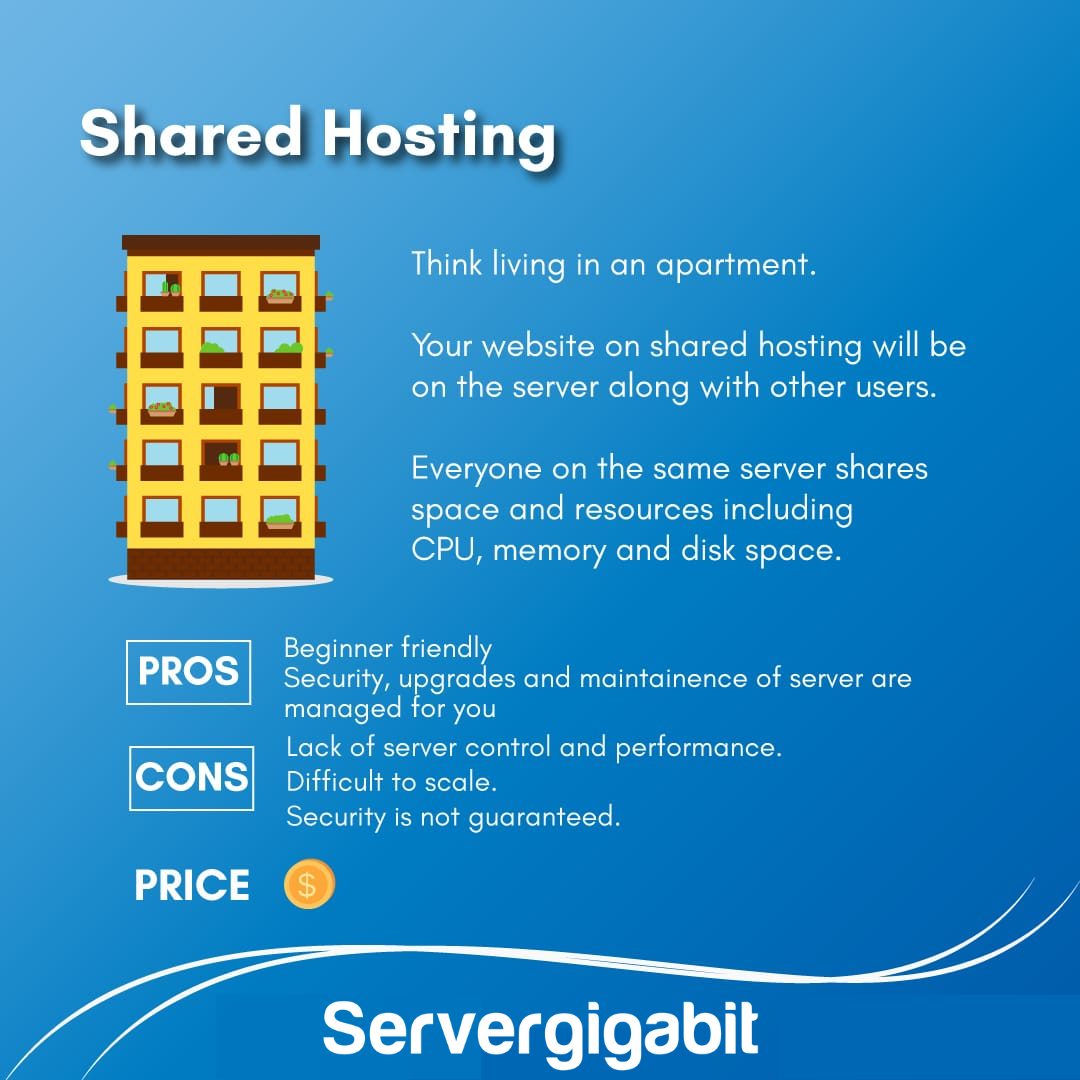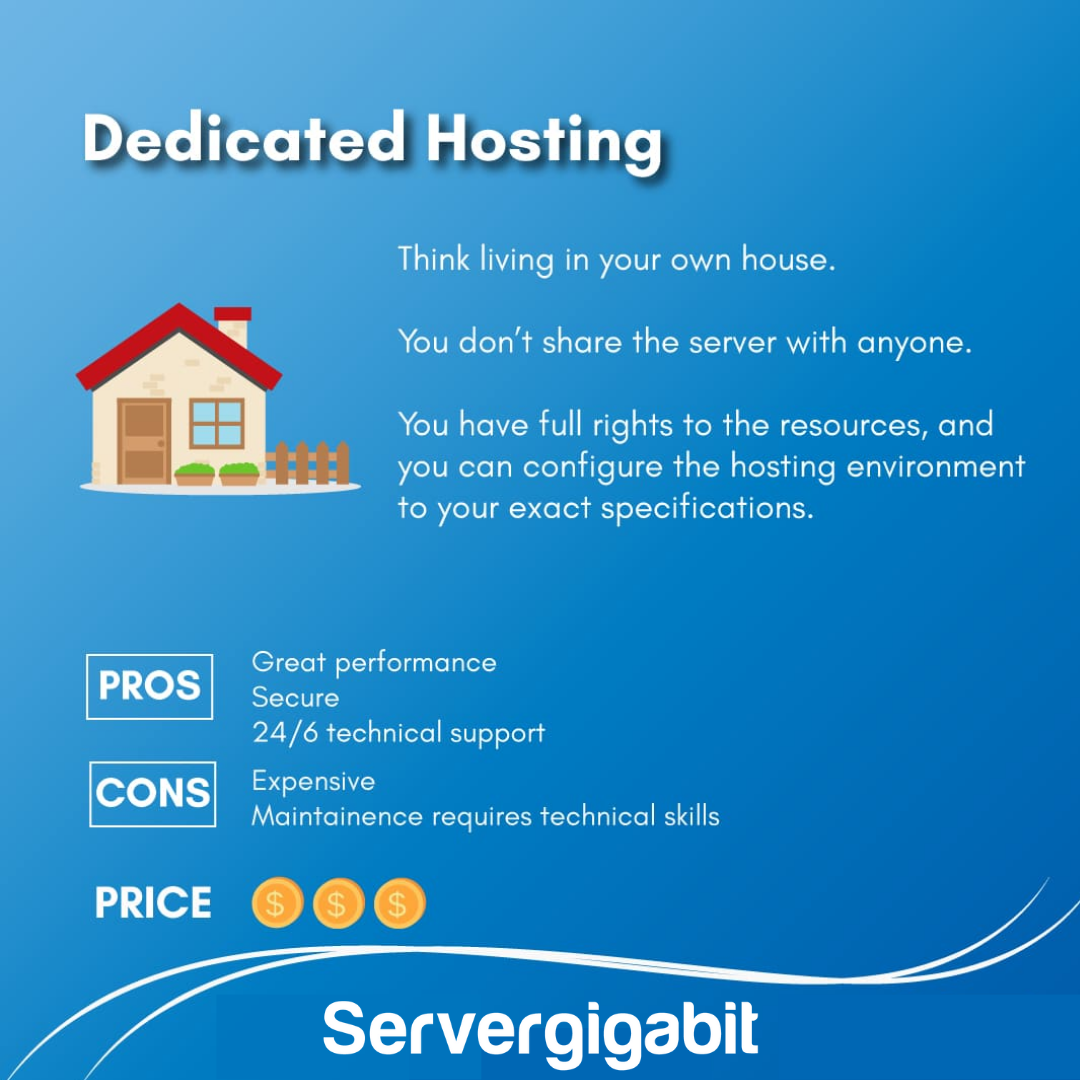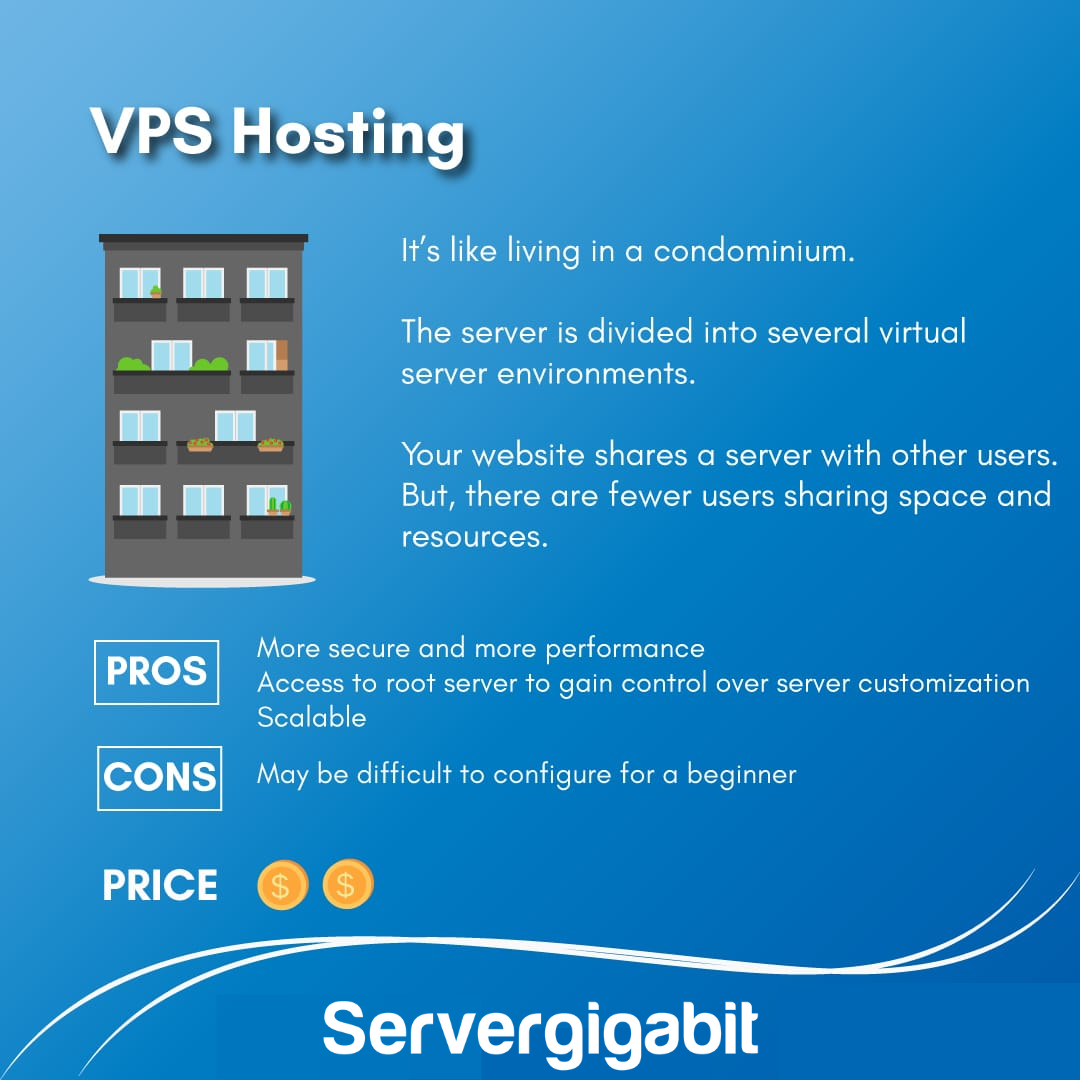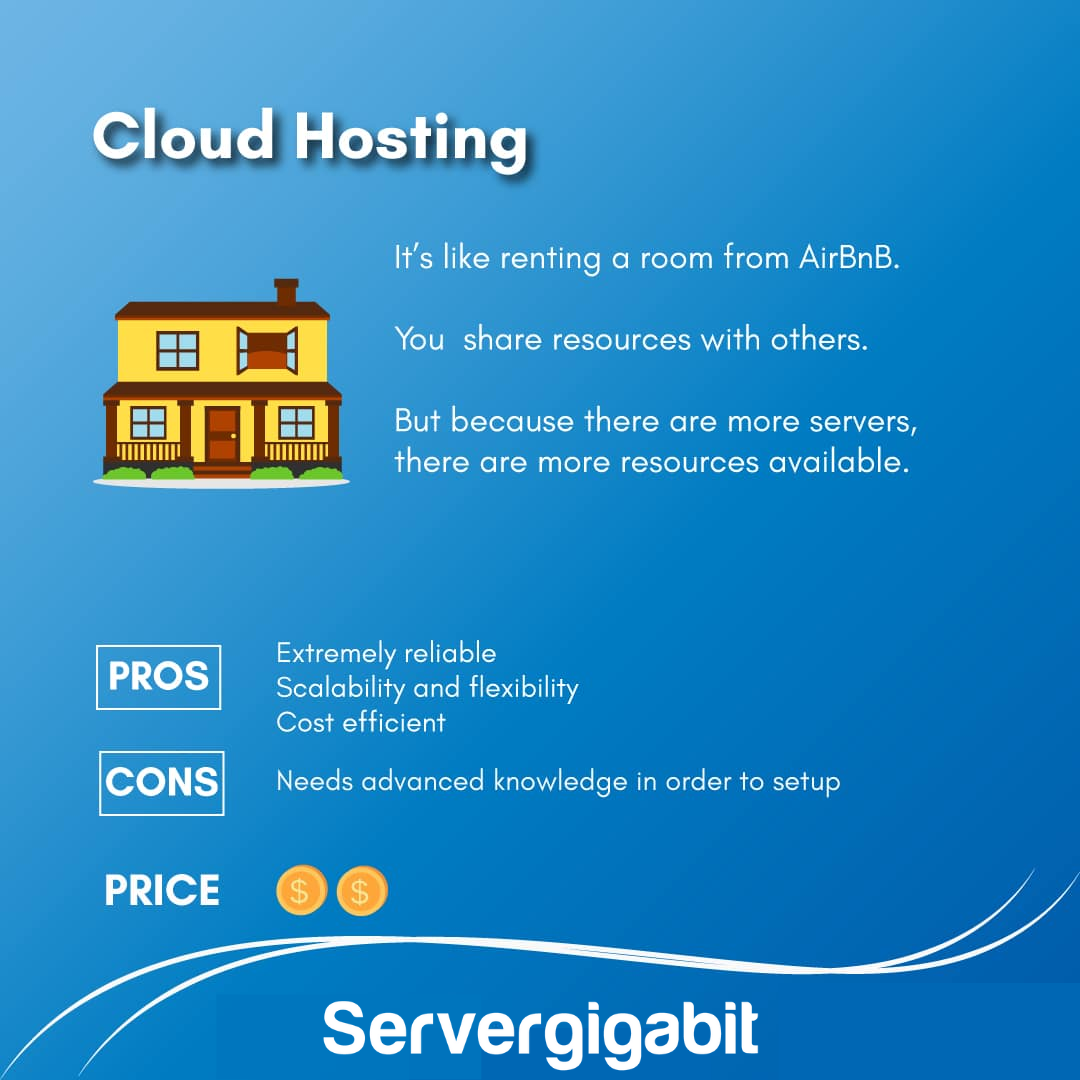What is Web Hosting?
Today’s small to large enterprises may tremendously benefit from having a website. Visitors to your website can browse for information or purchase things that you have for sale. They can even talk to your customer service team online before making the best buying selection. It’s similar to a physical store. You can’t service Internet users from all over the world, though.
That sounds fantastic. Also, it’s amazing. What precisely is the procedure?
A host is required for every website on the Internet. As if there were a place where you could save all of your site data and post it online. We are referred to by this host. Or, to put it another way, a hosting company.
A hosting provider provides the tools and services (such as creating a server from the ground up and troubleshooting technical issues) needed to host a website.
In today’s industry, there are primarily four types of hosting. Hosting that is shared. Cloud hosting is a term that refers to the use of Virtual Private Server (VPS) hosting. Hosting on a dedicated server is also available.
We’ll discover more about the distinctions between each hosting option before getting to the bottom of “How To Choose The Perfect Server For Your Needs.”
4 Types of Server Hosting
Shared hosting, dedicated hosting, virtual private server hosting, and cloud server hosting are all examples of server hosting. From the standpoint of specs and cost, each has its own set of benefits and drawbacks.
You must first grasp the benefits and drawbacks of each form of server hosting before deciding which one is appropriate for your business or personal requirements.
1) Shared Hosting
Shared Hosting is a form of web hosting service in which numerous customers or websites share the same web server resources. Consider living in a small apartment. In ONE building, there are several, independent residential units. The swimming pool, gym, badminton court, and other common apartment amenities would be shared by all of these households. Users of shared hosting share the same server, as well as the same server characteristics and resources, such as CPU, RAM, memory, and disc space.
The simplicity of usage is one of the benefits of shared hosting. Users do not have to worry about security, updates, or maintenance because shared hosting is normally controlled by the server business.
However, one of the drawbacks of shared hosting is the lack of server management and performance. The majority of users do not have root access to the server. If the server is down, all of the websites housed on the same server will experience the same downtime, which will result in a loss of revenue. Don’t put all your eggs in the same basket, as they say. Because the resources are shared, shared hosting is also difficult to grow. For example, if you wanted to install new exercise equipment in the communal gym area, you’d have to go through numerous rounds of debate with the rest of the apartment complex, which would take too much time and effort. Data security is also unreliable. When one website becomes infected with viruses or is hacked, the rest of the websites suffer as well.
2) Dedicated Hosting
A dedicated hosting service, often known as a dedicated server, is a form of web hosting service in which a client hires a complete server. There will be no one else on the server with you. It’s as though you’re living in your own home. You are not required to share the property with others. You also have full access to the server’s resources. You have complete control over how the hosting environment is configured to meet your individual needs and desires.
The benefits of dedicated hosting are self-evident. You’ve got exceptional performance at your disposal. Of course, the server’s specs would still have a big role on performance. Websites hosted on your dedicated server, on the other hand, will perform quicker and smoother because you aren’t sharing server resources with anybody. Because no one else has access to your dedicated server, your data is naturally more secure. Furthermore, a dependable web hosting service provides rapid and simple problem resolution via a skilled 24/7 customer support team.
The disadvantage of having a dedicated server is that it necessitates a certain level of technical understanding in terms of server maintenance. As a result, a dedicated server is not advised for a novice. A dedicated server is also one of the most expensive server hosting options.
3) VPS (Virtual Private Server) Hosting
A Virtual Private Server, or VPS, is a virtual machine that runs its own operating system, usually Linux or Windows. Unlike a dedicated server, which runs entirely on a single mother computer, a VPS’s mother computer is partitioned into several compartments. Consider living in a low-rise condominium. Despite the fact that these compartments share the same server, each compartment’s server characteristics and resources are allotted independently. As a result, compared to a dedicated server, a VPS is a more cost-effective option.
The advantage of VPS hosting is that, despite the lower cost, consumers still have access to excellent server performance. In comparison to shared hosting, it also provides better data protection. Users also have unique root server access and the ability to personalise their own VPS.
However, there is a disadvantage to using a self-managed VPS. That is, configuring the server would need a certain level of technical expertise. For a novice who has only recently begun studying, it may be rather challenging. However, some server hosting firms offer managed VPS, which eliminates the need for you to administer or maintain the server.
4) Cloud Hosting
A cloud server is a form of web hosting service that uses cloud computing technologies to build, host, and deliver it. Cloud servers are identical to traditional servers in terms of features and operation, but they are accessed remotely through a cloud service provider. Consider using AirBnB to rent a place. The property is rented to you for your own use. It’s also possible that you’re sharing property resources with the other renters. However, unlike shared hosting, cloud hosting is constructed on a larger number of servers, allowing you to access more server resources.
One of the advantages of cloud hosting is its high level of dependability. Not to argue that cloud computing never fails, but it does so infrequently. Cloud hosting is incredibly scalable and adaptable. Because it can be accessed remotely, you may update your server specs to increase your usage at any time and from anywhere. Cloud computing is not at all pricey. Cloud servers are becoming increasingly dependable and economical for business usage as a result of fast technological advancements and a competitive industry.
The main disadvantage of cloud hosting is that it requires expert server hosting skills to set up. At Server Gigabit, on the other hand, we endeavor to provide you with a simple cloud hosting option. Without any prior technological experience, setting up your server would take less than 5 minutes. Simply follow the step-by-step instructions in our welcome email to access your VPS after you’ve completed your purchase. You don’t have to be concerned because we’re one of Malaysia’s top web hosting providers.
5.0 How To Pick A Server That Best Suit Your Needs?
In today’s market, a website is a must-have for any business, whether it’s an e-commerce operation or a service provider. A website engages your company audience in immersive story telling, displays your portfolio, highlights the services/products you offer, and produces revenue from closed transactions. As a result, a website is a must-have. But how can you choose the right kind of web hosting for your requirements?
- Shared hosting is best at serving blogs and personal webpages that exhibit your artistic creations or fashion styles.
- VPS hosting is excellent for small to medium businesses with websites that expect a certain amount of traffic. Forex traders that use Electronic Advisors can also benefit from VPS (EAs).
- Dedicated hosting is suitable for large enterprises that require a high level of data protection as well as a significant quantity of website traffic.
- Cloud hosting is beneficial to all types of enterprises. You don’t have to be concerned about having no technical understanding regarding server hosting because of modern technology and a competitive industry. A reputable web hosting service provider can supply you with a handy cloud hosting option.








